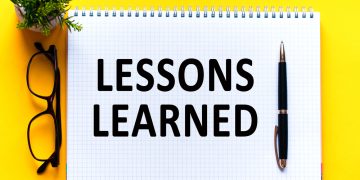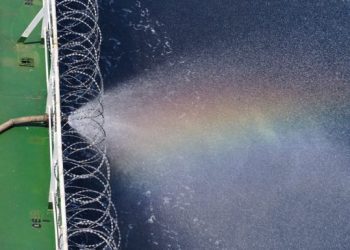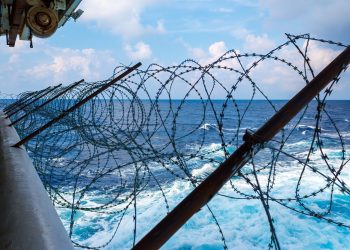We all like to think we are unprejudiced and inclusive, but unconscious biases influence a vast majority of our decisions, in a way that may hold organizations back.
The best way to prevent yourself from succumbing to these unconscious biases is to become aware of them and take action to prevent them when recruiting, hiring, and retaining employees. But what are these unconscious biases translated into?
What is unconscious bias?
Unconscious biases are social stereotypes about certain groups of people that individuals form outside their own conscious awareness. Research has shown that our brains naturally use bias to subconsciously pursue our goals. Everyone holds unconscious beliefs about others, which stem from our tendency to organize social worlds by categorizing.
For example, the unconscious bias in the workplace may cause a manager to assume that a younger person would be less capable to handle a certain job as opposed to an older, experienced one. Bias may also promote a specific wording in job descriptions discouraging women from applying for certain positions.
[smlsubform prepend=”GET THE SAFETY4SEA IN YOUR INBOX!” showname=false emailtxt=”” emailholder=”Enter your email address” showsubmit=true submittxt=”Submit” jsthanks=false thankyou=”Thank you for subscribing to our mailing list”]
Unconscious bias is something that exists at work because it exists in people’s minds, but if they are not recognized and addressed in some level, they can be detrimental to a company by negatively affecting decisions. Let’s take a closer look:
7 types of unconscious bias in the workplace
-The halo effect: First described by psychologist Edward Thorndike in the 1920s, the halo effect (also seen as halo error) is the tendency for positive impressions of a person, company, brand or product in one area to positively influence one’s opinion or feelings in other areas. The most simplified example is when we think someone is good-looking and we subsequently probably think they are also intelligent. In business, it is possible that a manager thinks high of a job candidate because he or she might have excelled on a project six months ago or, accordingly, thinks he or she is incapable of improving because he or she dropped the ball in the past (the “horns effect”).
-Affinity bias: This typically occurs when companies prefer hiring candidates who have worked at specific companies or schools or when a manager hires a candidate based upon their own image, no matter how tenuous the link may seem.
-Gender bias: An assertive woman at the workplace may be seen as “aggressive”, while a man with the same characteristics as “confident.” A Yale study in 2012 revealed that, when there were two candidates with the same skills -one from each sex- the college faculty preferred hiring male candidates. This is a cautionary tale for maritime which is struggling to be more gender inclusive, particularly in leadership roles.
-Confirmation bias: This is the most prevalent type of unconscious bias that we all experience every day. When we shape an opinion about something, we tend to look for information that confirms this opinion and undermine or overlook information that goes against them.
–Ageism: This refers to a tendency to have negative feelings about another person based on their age. At work, a tendency of employers to value younger talent more makes it difficult for people at their 40s and 50s to find a new job or move up in their careers.
-Beauty bias: Obviously, this happens when we base our opinion too heavily on someone’s looks and unconsciously favor attractive people for a job, overlooking their abilities for the role.
–Contrast effect: This has to do with comparing people in order to put them into context. A typical example of this type of bias for hiring managers is when the last candidate you interview for a role might seem better than all the others you have already interviewed, but if you had interviewed the same candidate first, you might not have reached the same conclusion.
How can we prevent it?
- Accept the existence of unconscious bias: The first step in order to resolve any issue is to accept it exists. It is not a rule that people get out of bed in the morning planning to treat people unfairly, but our brain is trained to rationalize illogical decisions made by our subconscious. So, in a personal level, it is important that we acknowledge we all have preconceptions about others that we cannot control.
- Recognize your own biases: To reduce the effects of unconscious bias, ask yourself: “Is my opinion factually true? Do I have the necessary evidence?” There are also some neurological tests that can uncover unconscious biases and reduce their influence. For instance, Implicit Association Test (IAT), created by Harvard, Washington, and Virginia universities, is a useful tool for measuring the strength of links you make between concepts (i.e. race, sexuality, etc.) and identify whether those concepts are good or bad. Another useful exercise is to imagine a positive contact with someone with whom you may have a bias.
- Identify which unconscious biases are most likely to affect your company: Unconscious biases could affect various aspects of everyday business, such as hiring, promotions, raises, and task assignments. Making sure that everybody is aware of the existence of unconscious biases and how these affect others are vital steps to limit their impact in an organization. Awareness training is a vital step in this respect.
- Mind diversity: By proactively ensuring a diversified management, an organization can guarantee a wide array of viewpoints, and help avoid biases when it comes to hiring and promoting people.






























































